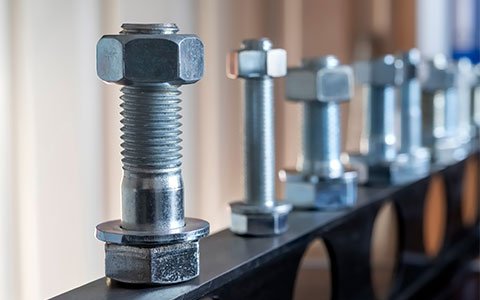Fastener distributors deliver the nuts, bolts, and springs that hold together military production systems. These are not the horse-shoe nails of Benjamin Franklin’s story, but they play just as vital a role in today’s world.
Customized vendor-managed inventory (VMI) programs offer automated fastener replenishment cycles. Optimas’ advanced VMI solutions blend secure technology, real-time consumption data, and Just-In-Time processes to optimize inventory levels for production.
Cost-Effectiveness
Often, most fastener-related costs in an industrial setting stem from inventory and overhead activities, such as inspection, administration, and over-ordering. Using a vendor-managed inventory (VMI) and distribution solution helps to reduce these expenses.
Choosing top fastener distributors can help reduce supply chain risk by sourcing parts to tight specifications from cost-efficient locations, providing local stocking and monitoring inventory, offering in-house manufacturing capabilities, and providing delivery prowess. Additionally, OEMs should evaluate their suppliers’ quality best practices, including certification by industry standards.
Many manufacturers look for ways to improve installation and production time and costs. For example, using cap nut fasteners can provide installation labor savings because they are designed to resist vibration, helping to distribute the load more evenly. Another way to improve production efficiency is by purchasing fasteners in bulk. This saves money and creates less waste material, which is a benefit to the environment as well. Buying in bulk also reduces shipment costs because items are shipped in larger quantities.
Flexibility
The ability to quickly change orders, address unforeseen issues, or even cancel them is a critical part of your supply chain. A quality supplier will provide you with this flexibility regarding fasteners, ensuring you have what you need for your projects.
Ultimately, this lets you stay on track and keep production moving forward. Choosing the right partner is critical to avoiding shipping delays, unfulfilled orders, or high costs.
Improve inventory management with world-class distribution ERP software customized to fit the unique needs of wholesale fastener distributors. Streamline processes and increase transparency with user-friendly data analytics, KPIs, and one version of the truth. Ensure your team is on the same page with robust inventory forecasting and exception management tools. Gain the flexibility to respond to a changing economy with fine-tuned pricing models and supplier performance tracking.
Convenience
When ordering fasteners, the last thing original equipment manufacturers want is for a lost shipment or lengthy delay to disrupt their production. To mitigate these risks, they should look for a vendor that offers local and regional sourcing capabilities.
This allows for better inventory control and can reduce costs associated with overhead activities, such as inspection, administration, and over-ordering. Ultimately, these cost-efficient solutions provide both OEMs and end-users with the flexibility they need to avoid costly disruptions.
Having the proper fasteners at the right time is crucial for efficient manufacturing. A suitable fastener distributor can bring the pins directly to the assembly line and monitor inventory on behalf of the customer, helping prevent stock-outs. This translates into time savings and a greater return on investment for the company. They can also offer kitting services to save on labor, space, and other resources. Aside from reducing costs, this strategy also helps maximize production efficiency.
Speed
When a company offers blanket orders to customers, it streamlines their ordering process in one step and enhances workflow. This service is a great way to keep an OEM’s production lines running smoothly while also providing a cost-effective solution to managing inventory.
Regarding nonstandard bolts, fastener distributors often shop until they find a manufacturer to sell them at the lowest price possible. As a result, they may cut corners to achieve this goal. This is why OEMS need to understand their suppliers’ manufacturing capabilities, as well as the ways they are capable of delivering products quickly.
For example, if a supplier only ships by container ship and air, an OEM should consider alternative options, like a domestic supplier offering rail and land transport. This can be a lifesaver when ports are clogged up and slowing shipping times. In a volatile market, this flexibility can make all the difference for an OEM. Read more interesting articles on Ebeak


















